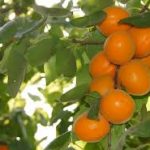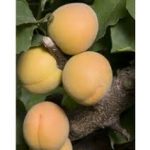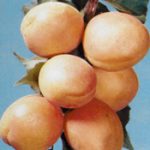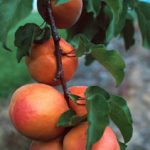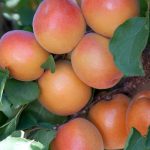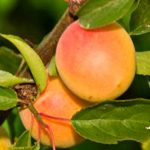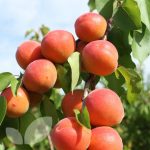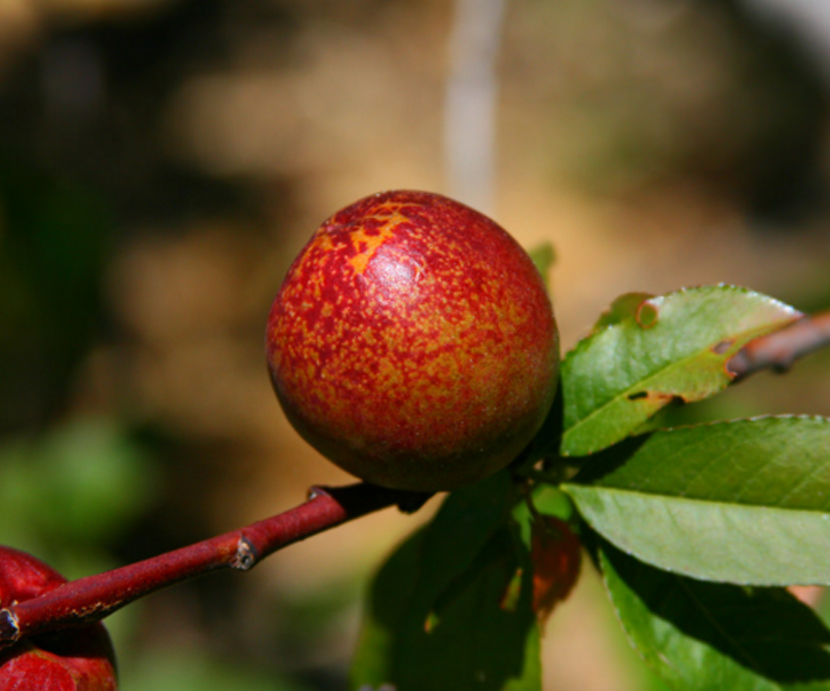 The different kind of apricot has various flavors from sweet to sour.
The different kind of apricot has various flavors from sweet to sour.
Chinese Apricot
Chinese Apricot is the fruit from yellow to medium-orange skin with a great taste as well as structure. It does not require the other pollinator as it is self-fruitful. The cooling requires 700 hours. It is early bearing with a heavy producing range.
Gold Cot
The gold cot apricot is the tree which is about 15 ft. At the start of the spring, the tree has white or light pink flowers. The fruit is provided by the tree at the start of the summer time around June. The fruit is moderate to large in size with orange skin. This tree grows well in Minnesota to Austin, Texas. At the beginning of the spring, it must be trimmed.
Tilton
It is a medium size fruit with an orange skin. It can be also be freeze, canned and dried. The trees are resistant against the late frosts. It is good for cooler as well as hotter climatic conditions.
Wenatchee
It is a big size fruit which is also known as Moorpark. It has light yellow skin with a delicious taste. It is self-pollinating. It grows well in nicely drained and rich soil.
Goldbar
It is a light yellow-orange fruit with reddish blush. It is huge in size with a spherical to oval in shape and compact sides. The flesh of the fruit is juicy.
Gold Kist
Gold Kist is the first maturing fruit but usually a challenging to develop. It develops in well-drained and rich soil. It is huge in size with orange freestone skin and superior taste. It can be used for drying, canning and cooked goods.
Tomcot
It is medium to large size fruit with 5.4 cm in diameter and oval in shape. The skin of the fruit is light orange in color. The side which is encountered with the sun develops a blush. It has a sweet taste with mild orange flesh. It is not suitable for canning.
Autumn Glo Apricot
Late season apricot with tremendous flavor. Ripens in the first two weeks of August. Fruit is medium-sized with good color. One of the highest scoring apricot varieties to date at Dave Wilson Nursery fruit tastings. 500 hours or less. Self-fruitful. USDA Zones 7-9. (Zaiger)
Blenheim (Royal) Apricot
All-purpose freestone. Sweet, aromatic, flavorful – the long-time No. 1 apricot in California. Early bloom. Late June harvest in Central CA. 400 hours or less. Self-fruitful. USDA Zones 7-8.
Bongo Fruiting-Flowering Apricot Prunus mume ‘Bongo’
Prunus mume ‘Bongo’. Flowering apricot, large fruit to 2 inches, pinkish-white flowers.
Brittany Gold Apricot
This sweet apricot is a very consistent producer in the Dave Wilson test orchard, and has proven to perform in tough climates where no other apricots do. This large, firm fruit has an extremely long season for an apricot, hanging for two weeks or more at the end of July. Self-fruitful. Estimated chilling requirement 500-700 hours. (U.S. Plant Patent No. 13504)
Canadian White Blenheim Apricot
One of the all-time top-scoring apricots in Dave Wilson Nursery blind taste tests. Syrupy sweet white flesh with firm texture. 700 hours. Pollenized by other late blooming apricot. USDA Zones 4-7..
Earli-Autumn Apricot
Wonderful flavor as tested by Dave Wilson Nursery both fresh and dried. Will please even the most critical of apricot lovers. Late harvest, first two weeks of August. 500 hours or less. Self-fruitful. (Pat. No. 9937). USDA Zones 7-9. (Zaiger)
Flavor Giant Apricot
One of the earliest fruits of the year (ripens late May/early June in Central CA). Heavy crops of extremely large, sweet-tart, flavorful fruit. 500 hours or less. Self-fruitful. USDA Zones 7-9.
Flora Gold Apricot
All-purpose freestone. Early harvest, 2-3 weeks before Blenheim (Royal). Very good quality, reliable producer (produces when other varieties do not). Good choice for backyard apricot. 400 hours or less. Self-fruitful. USDA Zones 7-9. (Zaiger)
Harcot Apricot
From Canada. Frost hardy late bloom. Resists brown rot and perennial canker. Medium to large fruit ripens early to mid-June in Central CA. Sweet, juicy, rich flavor one of the best. 700 hours. Self-fruitful.
Harglow Apricot
Late-blooming, productive tree, proven in coastal Northwestern climates. Medium size, bright orange fruit sometimes blushed red. Orange freestone flesh is firm, sweet, flavorful. Resistant to perennial canker and brown rot, resists cracking. Originated in Ontario, Canada. Introduced in 1982. 800 hours. Self-fruitful. USDA Zones 5-9.
Hunza Apricot
Native to northwest Pakistan, the fruit is sweet and flavorful. Very cold hardy.
Katy Apricot
Large, all-purpose, flavorful freestone. Tree ripe fruit is subacid (not tart). A favorite apricot for warm-winter climates. Early harvest, 3-4 weeks before Blenheim (Royal). 200 to 300 hours. Self-fruitful. USDA Zones 7-9.
Mokel Fruiting-Flowering Apricot Prunus mume ‘Mokel’
Prunus mume ‘Mokel’. Spectacular early pink blooms, 1″ to 1 1/4″ fruit. Sometimes used for pickling.
Moorpark Apricot
Long-time favorite of apricot fanciers for its exceptionally rich flavor and aroma. Reliable producer. Used fresh and for canning. 600 hours. Self-fruitful. USDA Zones 6-9.
Nugget Apricot
Large, flavorful yellow freestone. Attractive orange skin blushed with red. Ripens mid-June in Central CA, 1-2 weeks earlier than Blenheim. Vigorous, productive tree. Originated in Ontario, CA. Introduced in 1956. Estimated chilling requirement 500 hours or less. Self-fruitful
Patterson Apricot
Reliable, heavy bearing commercial variety. Very firm, medium-sized fruit suited to canning, drying or fresh use. 600 hours. Self-fruitful. USDA Zones 6-9.
Perfection Apricot
Very productive, hardy tree. Fruit is very large, sweet and juicy. Performs well where spring frost is a problem. USDA Zones 4-7.
Pixie-Cot Miniature Apricot
Compact tree with medium-sized, fine quality fruit. First genetic dwarf apricot to meet the flavor standards set by Dave Wilson Nursery for release to the home gardener. Ripens first week of June in CA’s Central Valley. 500 hours. Patent pending. (Zaiger)
Puget Gold Apricot
Proven producer of large, flavorful fruit in Western Washington. Recommended for other western climates where spring rains and frosts limit apricot culture. Harvest early August. 600 hours. Self-fruitful. USDA Zones 6-9.
Rival Apricot
Aromatic, slightly tart, large oval fruit. Heavy midseason bloomer, good producer. Early harvest of orange-red blushed or speckled red fruit with deep orange flesh. Reliable variety where frost hardy traits are required. Requires an early blooming pollenizer. Zone 5-8.
Royal Rosa Apricot
Extremely vigorous – more disease tolerant than other apricots. Bears young and heavy. Especially nice fruit: sweet, low acid, fine flavor. Very early harvest (late May in Central CA). Excellent backyard apricot. 500 hours. Self-fruitful. USDA Zones 7-9. (Zaiger)


